From Egyptian scarabs to the lovely ladybug, beetles are the subject of significant symbolism for cultures around the world. This is no surprise. As a matter of fact, beetles are so numerous and varied that there are over 350,000 described species of beetle. Even if plants are included in this count, if every living creature on earth were to be counted up, one in every five would be a beetle! With so many different and wonderful beetles to appreciate, it is easy to see why these bugs make such a big impression! (1)
Table of contents
- Beetle Symbolism and meaning
- Beetle Native American Symbolism
- Beetle Eastern Symbolism
- Beetle Christianity Symbolism
- Beetle Celtic Symbolism
- Beetle African Symbolism
- Beetle in Dreams
- Beetle Encounters and Omens
- Beetle’ Mythology and Folklore
- Beetle Spirit Animal
- Beetle Totem Animal
- Beetle Power Animal
- Beetle Tattoo Meaning
Beetle Symbolism and Meaning
Depending upon the context and culture, beetles may represent anything from pestilence and decay, to cosmic knowledge, to childhood innocence. Beetle symbolism is as diverse and fascinating as beetles themselves!
The beetle is one of many insects which are consistently connected with decay and decomposition. Both because they eat decaying matter and because they sometimes hunt the other insects which are drawn to decay and death, beetles are often drawn to dead things and certain species have come to be heavily associated with the decomposition process. For this reason, beetles may be connected with death, grief, impermanence, or fear. (2)
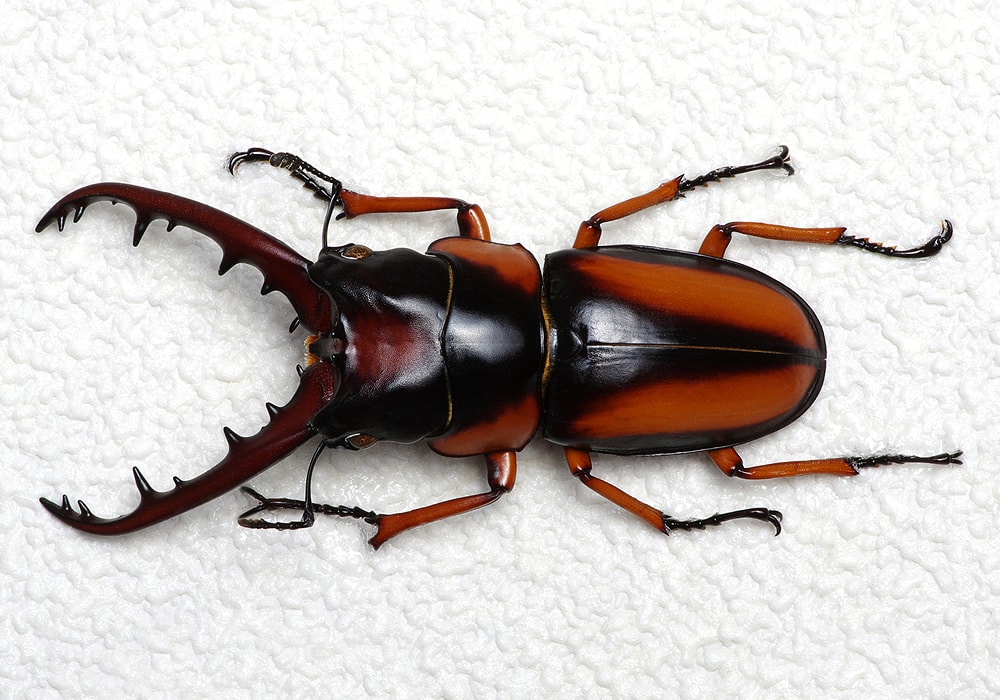
In some parts of the world, like Japan, collecting beetles is a popular childhood hobby. In Japan, as with several other regions, beetles are associated with the spring and summer months. During these months, it is common for children to go out and catch beetles which are kept as pets and even sometimes allowed to fight with each other to prove their strength. For this reason, beetles may be connected with youth, childhood, rejuvenation, innocence, or purity. (3)
We previously discussed a connection between beetles and decay, but it’s important to note that animals which play a role in decomposition are vital for cleaning the earth. Without them, materials could not decompose and the earth would be a very unsanitary place. Creatures like the Dung Beetle, which are best known for rolling balls of animal dung which can dwarf their own bodies in size, are connected with purification, duty, and service. On a similar note, while many beetles are agricultural pests, some beetles are beloved for eating harmful pests and thus safeguarding crops. This is particularly true in the case of ladybugs.(4)
Beetle Native American Symbolism
Native American legends surrounding beetles are surprisingly scarce. In general, though, there is a dual association between beetles and either death and darkness or prosperity and fertility. In many legends, bugs of all sorts are thought of as bringing dark magic and pestilence with them. Despite this, many stories continue to connect beetles with fecundity and the life-giving properties of nature. (5)
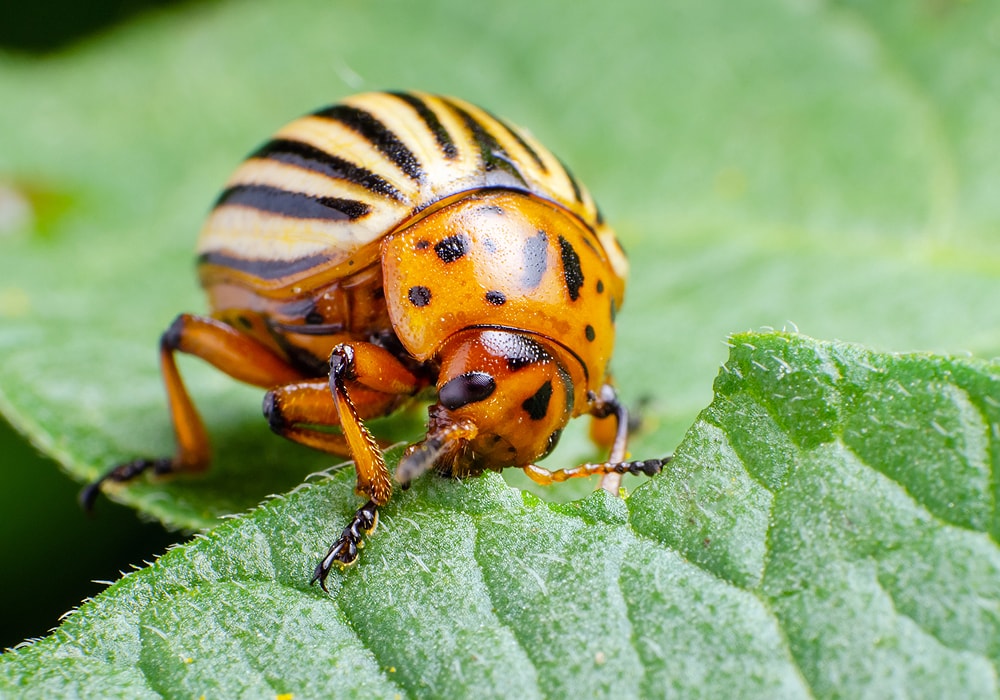
According to Hopi mythology, the beetle is deeply connected with the rains which bring life to the land and end the desperation and danger of the drought season. The Hopi believe that the beetle people grew thirsty in their underground homes one day and ventured to the surface where they found the land to be parched. The beetles understood right away that the earth desperately needed rain. In order to bring the rains, the beetles decided to perform a special dance. This dance pleased the clouds which formed in the sky and granted the beetles’ wish. The land was drenched with water and rejuvenated once more. (6)
So, beetles may be connected with rain and the weather. In another sense, though, the beetle is connected with the important cultural rituals of the Hopi and the reverence for nature which is required in Hopi culture in order to reap its benefits. (7)
Beetle Eastern Symbolism
As previously discussed, beetles hold a unique role in Japanese culture. They are popular pets and are a favorite summer pastime for children. As a matter of fact, the creator of the global sensation of “Pokemon,” Satoshi Tajiri, created the series out of nostalgia for his fondly remembered childhood days of catching beetles and comparing them with his friends. The monster-catching fun of Pokemon is directly inspired by this Japanese tradition! (8)
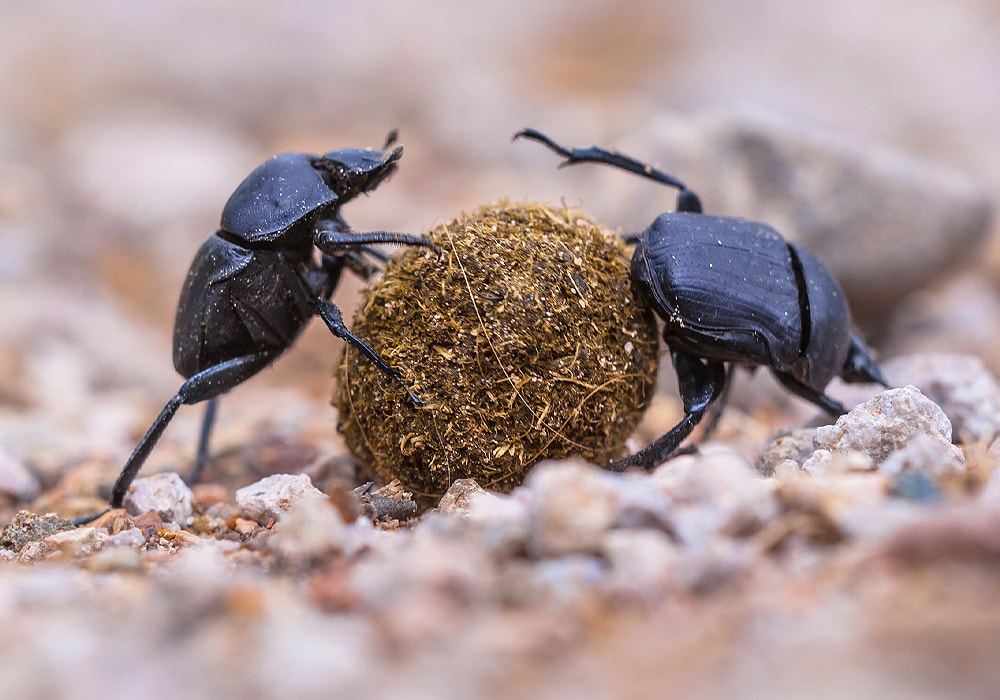
In Chinese folklore, the beetle is connected with prosperity and wealth. According to one Chinese fairytale, a terribly poor widow with nothing to eat or feed her son was once visited by a spirit which gifted her a charm in the shape of a golden beetle. With the golden beetle in her possession, the woman was able to make any food that she desired appear in her cooking pot. The woman was so pleased that she forgot her humility and began hosting lavish dinners for her peasant friends. In due time, her neighbors caught on to the magic of the beetle charm and grew jealous of her fortune. Eventually, the beetle was stolen from her. (9)
Beetle Christianity symbolism
It is commonly quoted that the biologist J.B.S. Haldane once pointed out that by studying the natural world, one might conclude that God’s favorite creature to create must have been the beetle on account of their unusual frequency in nature. (10)
“The Creator would appear as endowed with a passion for stars, on the one hand, and for beetles on the other, for the simple reason that there are nearly 300,000 species of beetle known, and perhaps more, as compared with somewhat less than 9,000 species of birds and a little over 10,000 species of mammals. Beetles are actually more numerous than the species of any other insect order. That kind of thing is characteristic of nature.”
— J.B.S. Haldane
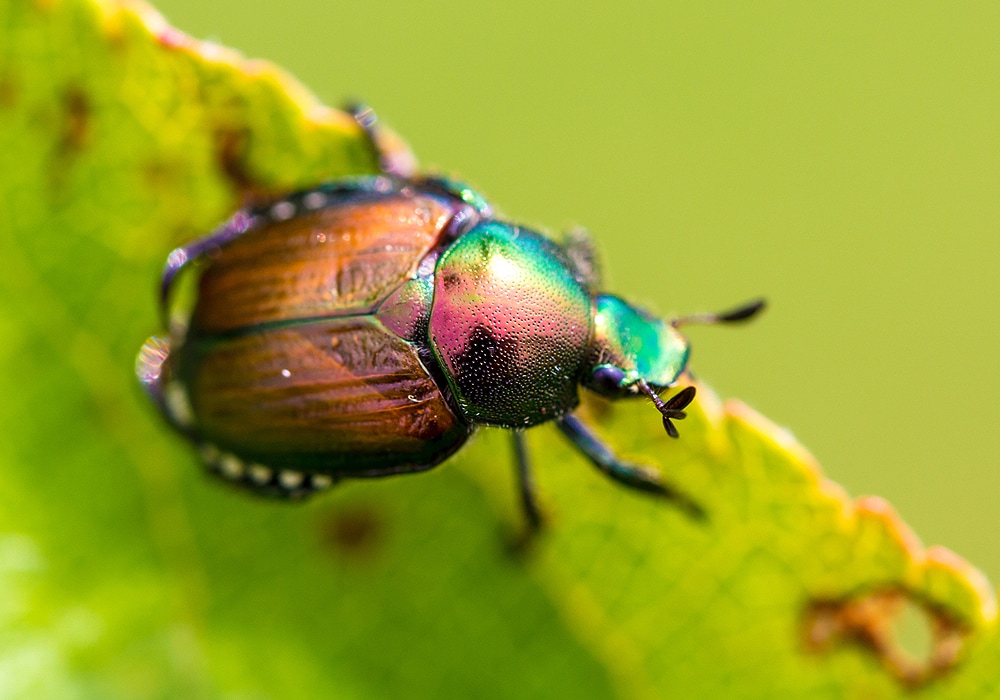
While beetles as “God’s favorite” might be a somewhat blasphemous assumption to make, there are more simple lessons available therein. One is that God appreciates all of creation, down to the smallest insects which may be unnoticed by man. Another is that the vastness of creation may reflect its creator in ways that we can neither comprehend nor anticipate.
In Leviticus 11:20-22, the beetle is mentioned with the grasshopper and the bald locusts. But experts now say that this entry is erroneous.
“Yet these may ye eat of every flying creeping thing that goeth upon all four, which have legs above their feet, to leap withal upon the earth; Even these of them ye may eat; the locust after his kind, and the bald locust after his kind, and the beetle after his kind, and the grasshopper after his kind.” (11)
The New King James Bible corrects them to crickets to describe the leaping insects of Leviticus 11:20-22. In any case, one might still presume a connection between beetles and pestilence, and/or the wrath of God. (12)
Beetle Celtic Symbolism
Beetles are maligned in much of the Celtic world. In fact, in Ireland, the “dearg-a-daol,” or “devil’s coach-horse,” a type of Rove Beetle, is thought of as representing all things malicious or unholy. This insect is so mistrusted thanks, in part, to its body posture when threatened resembling that of a scorpion. Additionally, this beetle is said to have a painful bite and to exude an unpleasant odor.
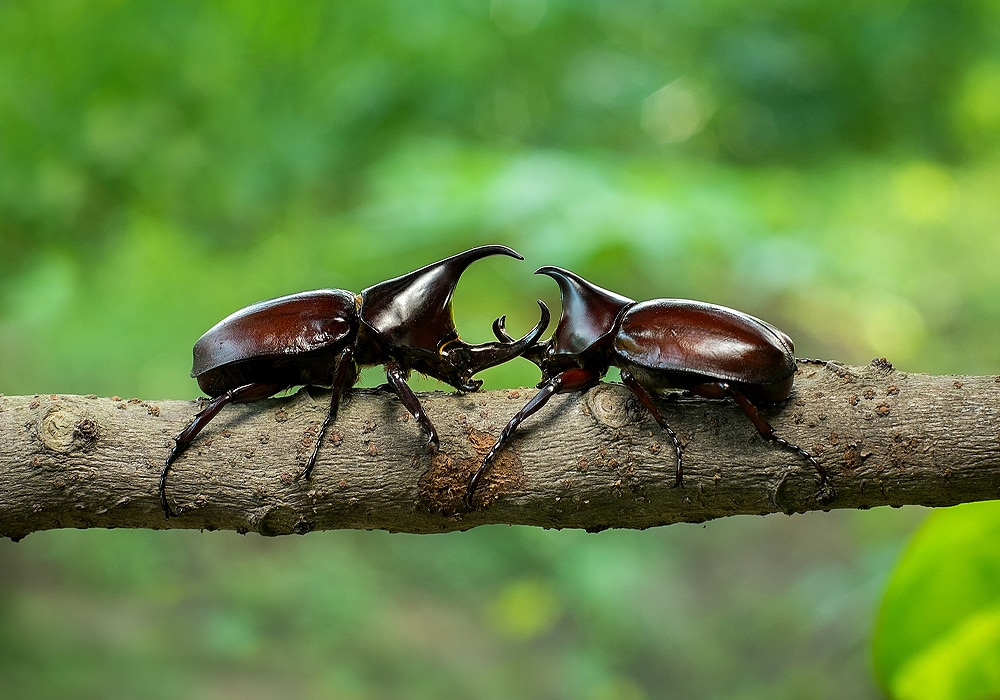
According to some legends, this beetle was a betrayer of Christ which contributed to his crucifixion. In other stories, the Rove Beetle is connected with people who have been shunned from civilized society. This beetle is even connected with the seven deadly sins. (13)
Beetle African Symbolism
The Scarab Beetle is one of the most recognizable and important symbols of Ancient Egypt. Egyptian society connected these insects with growth, development, and competence. According to Ancient Egyptian mythology, the God, Khepsis, a Scarab Beetle, would bring about the morning each day by rolling the morning sun into the sky in the fashion of a beetle rolling dung. When Egyptian religion began to center more conclusively upon the god of the sun, the Scarab Beetle became one of many symbols associated with him. (14)
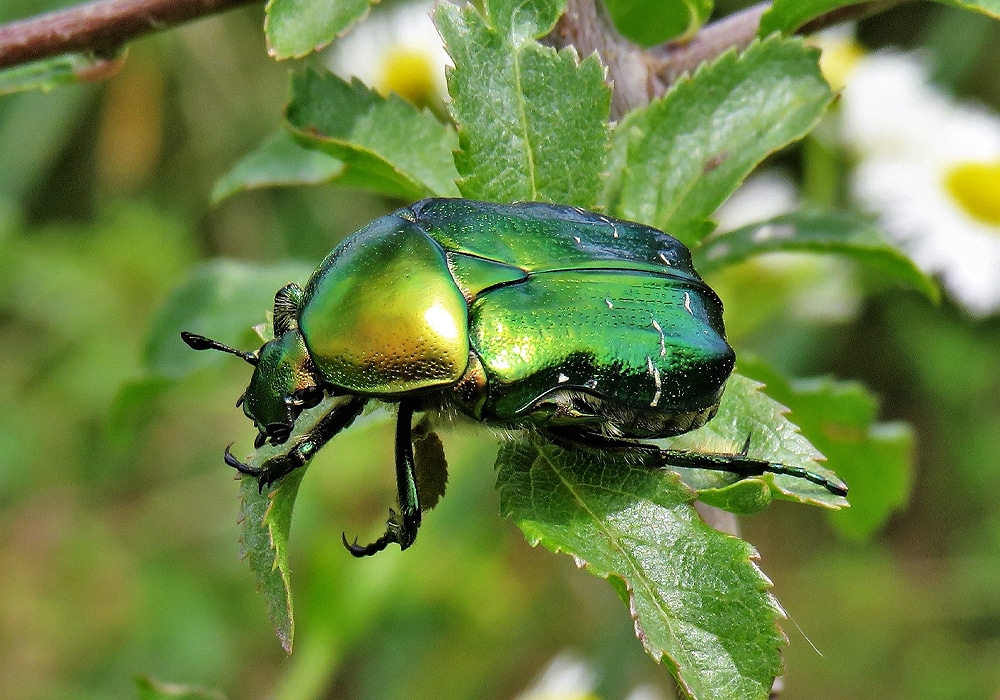
One of many embalming processes carried out by ancient Egyptian societies was the removal of the heart of the deceased. Because Scarabs were so firmly connected with rebirth, the heart would be replaced with a stone Scarab amulet or figurine which would symbolize and aid in the resurrection which was thought to occur when the deceased awoke into the kingdom of the dead. (15) (16)
Beetle in Dreams
Dreaming of a beetle may indicate the beginning of a new cycle in one’s life. Many species of beetle are fairly short-lived and emerge in spring only to perish within a few months. Other beetles are long-lived and may hold meanings more closely connected with longevity and wisdom. In any case, a beetle dream may indicate an upcoming change or metamorphosis. Remember that no matter what form you take, your substance need not change.
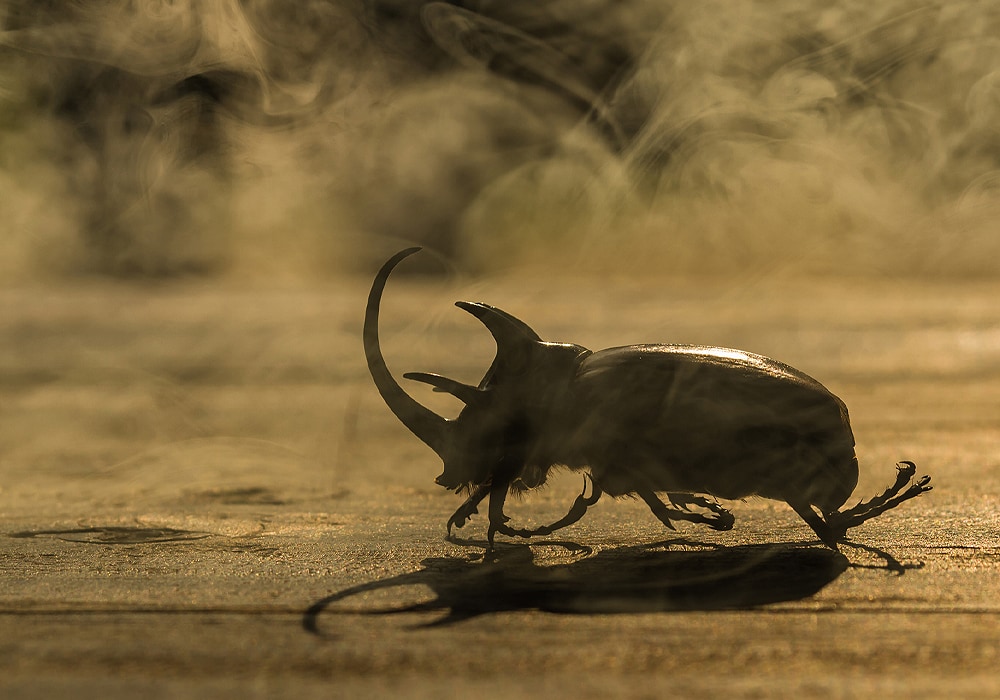
Dreaming of a beetle may also relate to prosperity. While some beetles are pests, others are important contributors to the garden or field. Beetles safeguard crops by eating harmful pests. In this way, a beetle dream may warn you not to judge others too hastily. Such a dream may also warn you not to interfere too much into life’s natural cycles. Things are bound to occur in the fashion which nature dictates. It is often better judgment to be still and watch than to interfere. (17)
Beetle Encounters and Omens
A beetle encounter is a great reminder of the vastness and complexity of the natural world. Beetles are the perfect example of an area of nature which is so vast that it is not known whether we have, in fact, even discovered it all.
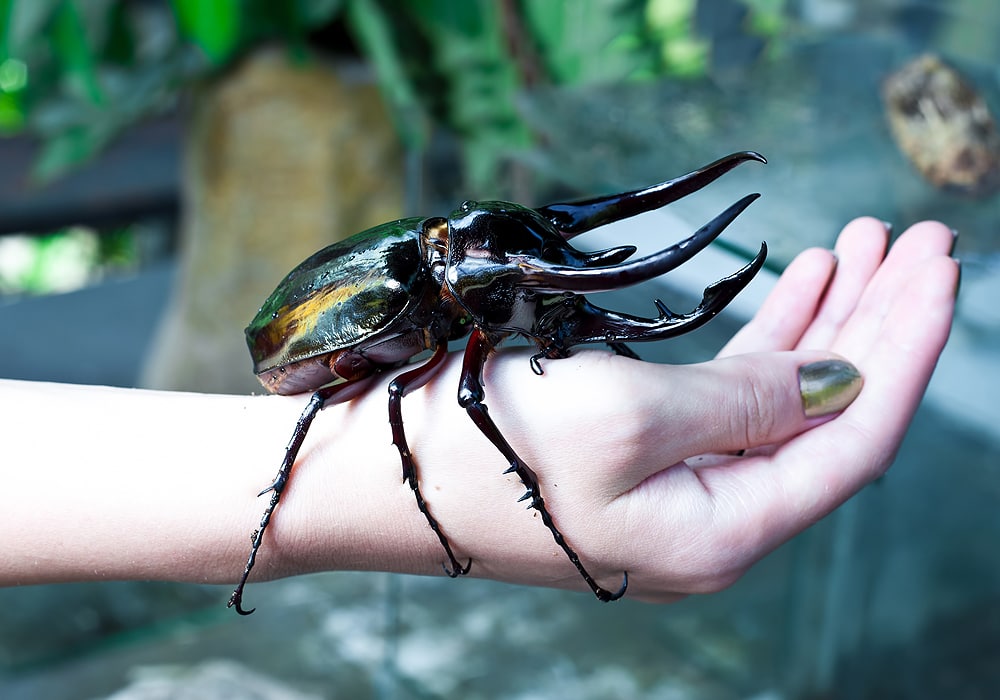
Furthermore, a beetle encounter reminds us to be tough and steadfast in our duties. With proper determination and no complaining or doubt, a beetle can move a dung ball up to 250 times its own size. Beetles remind you that you are capable of much more tahn even you realize. (18)
Beetle Mythology and Folklore
According to an Ancient Greek myth, the beetle was once an arrogant musician name Cerambus. Cerambus was so talented that the nymphs of the forest loved to gather and listen to his music while he tended to his flock of sheep. Cerambus was the son of Poseidon and was very arrogant and proud. One day, while the nymphs were watching him, Cerambus began boasting that they were not truly sons of Zeus and that those nymphs were of lower birth than he. In retaliation, the nymphs let his sheep wander to their deaths and transformed Cerambus into a humble beetle. (19)
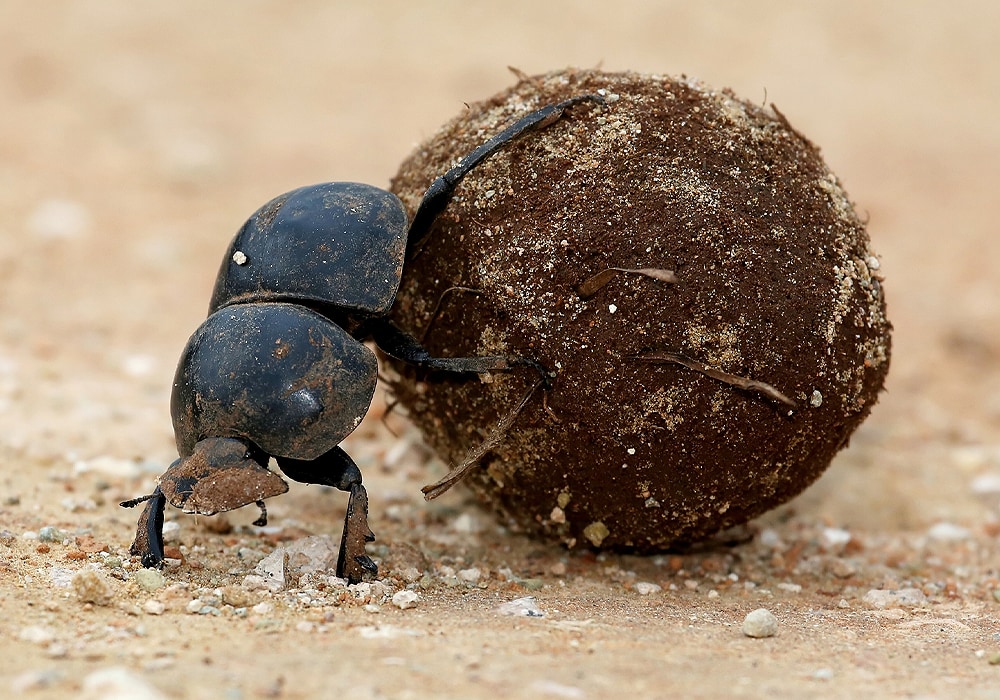
Beetle Spirit Animal
If your spirit animal is the beetle then you are likely steadfast, hardworking, and determined. People with the beetle as their spirit animal don’t whine or complain when confronted with a challenge. They simply get down to business.
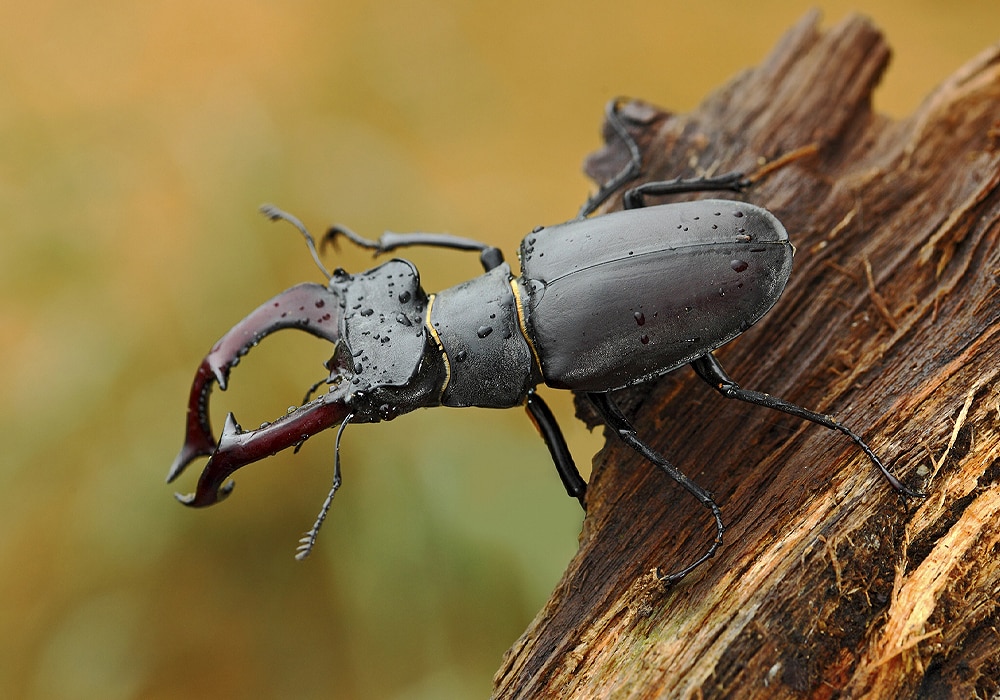
The beetle spirit animal does not indulge in self-doubt. Instead, the beetle spirit believes that it can accomplish whatever it must. The beetle spirit animal has a strong sense of duty. People with this spirit animal have an innate desire to be useful to others.
Beetle Totem Animal
The beetle totem animal is connected with fertility, prosperity, and the spring season. People with this totem animal have a special connection with nature and are often drawn to outdoor hobbies like gardening and hiking. The beetle totem animal considers itself to be a steward and friend to nature. To connect with this totem animal, pick up litter in your local park or plant some flowers which attract and feed pollinators!
Beetle Power Animal
The beetle’s power is raw strength. Despite its diminutive size, the beetle can move objects which dwarf its size and weight. If the problems facing you seem mountainous, call upon the assistance of the beetle power animal.
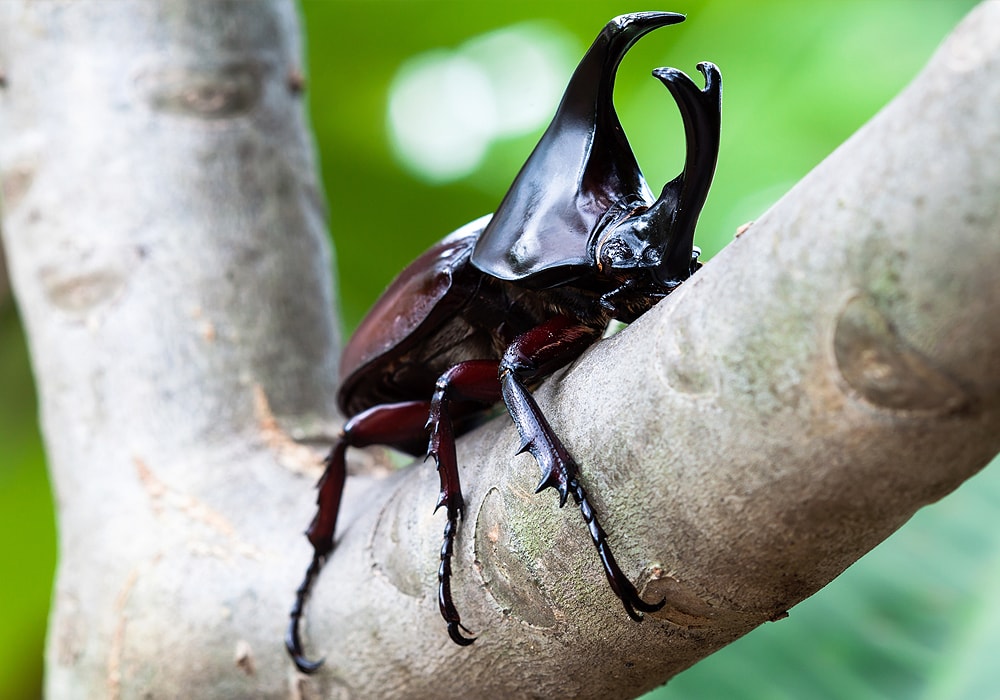
Stronger than it looks and capable of enduring anything, the beetle power animal will help you get through hard times without losing your positive spirit or sense of joy. (20)
Beetle Tattoo Meaning
A beetle tattoo can be chosen as a symbol of renewal or rejuvenation. (20)
Additionally, beetle tattoos may be chosen to represent inner strength, fortitude, or work ethic.

For someone of Japanese nationality, a beetle tattoo may represent the innocent and joyful pastimes of youth.
Conclusion
Beetles are all around us! They are, in fact, the most common animals upon this wide earth. So, it makes sense that there is a lot that we can learn from them. Obviously, something that beetles are doing is working for them! The mystery of the beetle has held a powerful allure over human cultures since ancient times.
Related

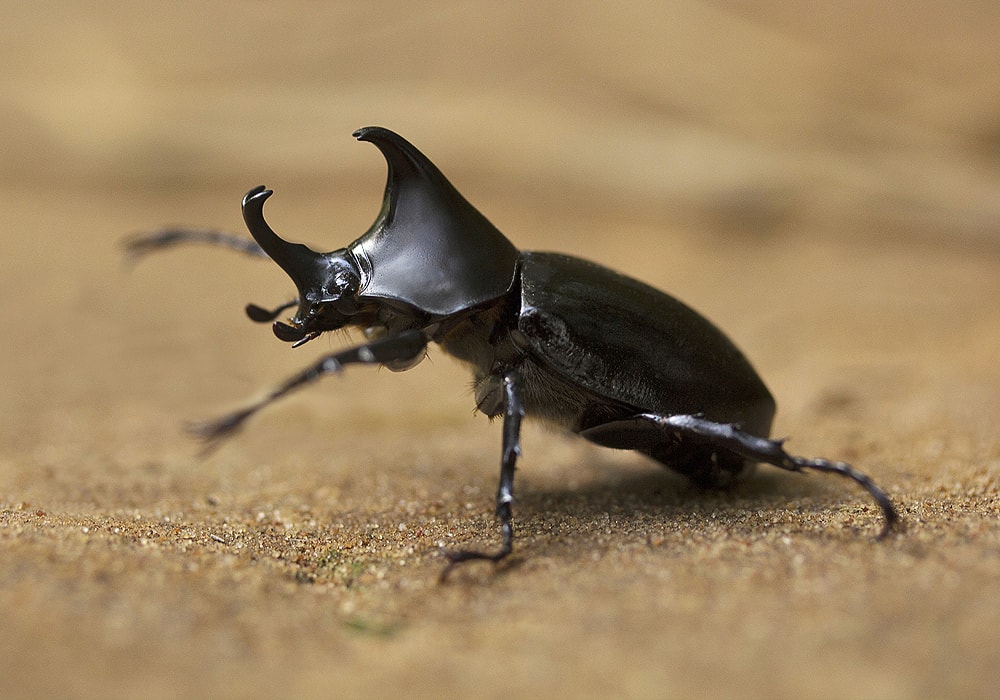
I always kill them in my room, what’s the consequence of killing them , pls?😶
Please stop killing them…the major consquence is death